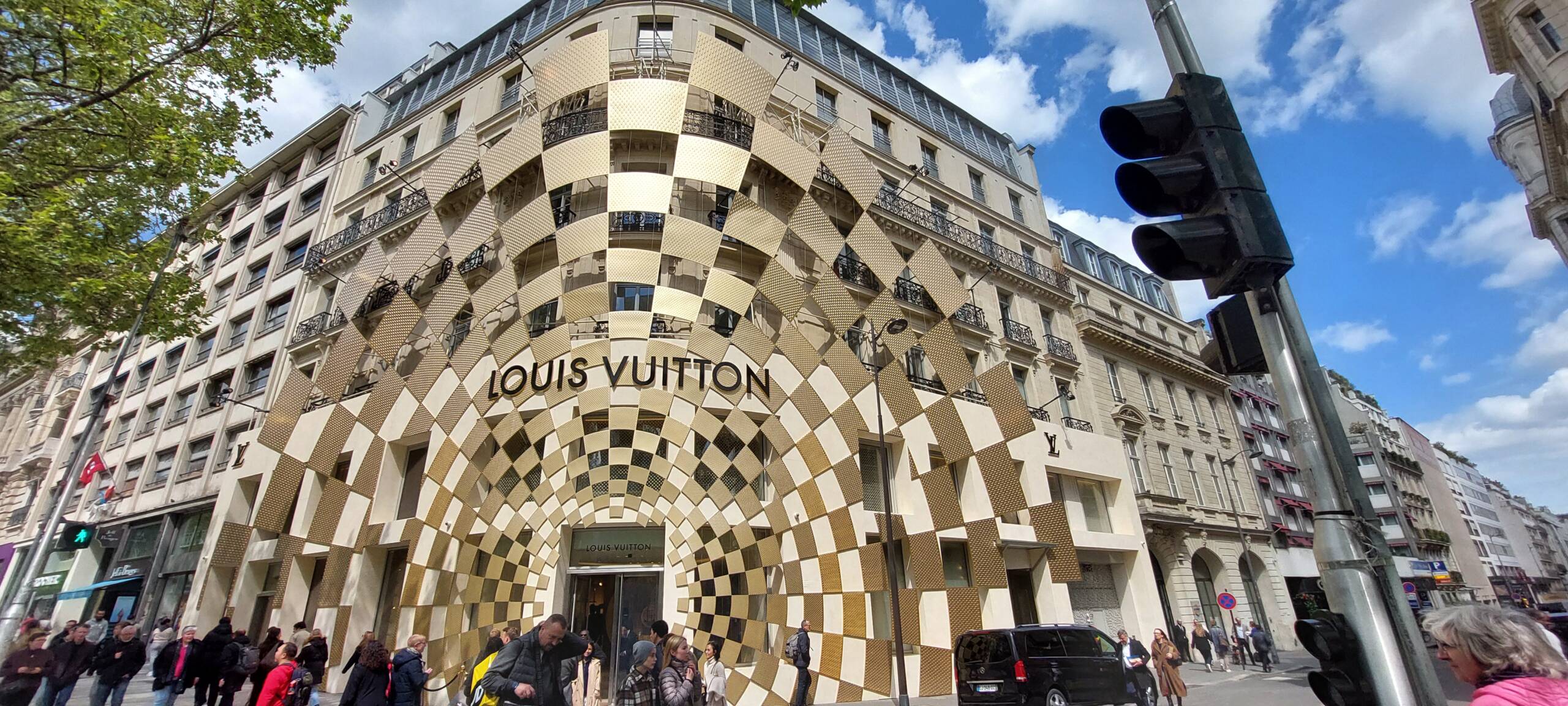Resilience in Luxury: Louis Vuitton's Timeless Appeal on the Champs-Élysées During Economic Downturns
The Louis Vuitton store depicted in the image is located on the prestigious Avenue des Champs-Élysées in Paris, a global epicenter of luxury and fashion. This location is emblematic of high-end retail, drawing both affluent locals and international tourists who are eager to experience the pinnacle of luxury shopping. The store’s striking, modern facade, with its checkered optical illusion design, stands out amidst the classic Parisian architecture, symbolizing the brand’s blend of heritage and innovation.

In times of economic recession, the luxury market, particularly brands like Louis Vuitton, exhibits a unique resilience. While broader retail sectors may suffer significant declines, luxury brands often maintain stability and even growth. This phenomenon can be attributed to several key factors. Firstly, the primary customer base of luxury brands consists of high-net-worth individuals who are less affected by economic downturns. Their wealth allows them to continue spending on high-end goods, which they often see as investments or essential elements of their lifestyle. These consumers value the exclusivity, quality, and status associated with luxury brands, making them less likely to cut back on such purchases even during tougher economic times.
Moreover, luxury brands like Louis Vuitton have cultivated a strong brand equity over the years. This brand equity is not just about recognition but also trust and perceived value. The heritage, craftsmanship, and innovation embedded in the brand’s identity ensure that its products remain desirable. Consumers believe in the enduring value of these products, which often retain or even appreciate in value over time. This perception of luxury goods as stable investments can drive continued demand even when disposable incomes might be constrained for the general population.
Additionally, luxury brands often employ strategic marketing and customer engagement practices that further solidify their market position during economic downturns. For instance, they might enhance their customer service, create exclusive experiences, and release limited-edition products to maintain consumer interest and loyalty. These tactics not only reinforce the brand’s exclusivity but also provide a sense of stability and normalcy for their clientele, who might be seeking reassurance in their spending habits.
The location of the Louis Vuitton store on the Champs-Élysées itself is a testament to the brand’s strategic positioning. This avenue is synonymous with luxury, fashion, and grandeur, attracting millions of visitors annually. The store’s presence here ensures a constant flow of high-potential customers, both from the resident wealthy class and international visitors who regard shopping at such iconic locations as part of their travel experience. The architectural grandeur of the store adds to the allure, making it not just a shopping destination but also a landmark in its own right.
The luxury market’s resilience during economic recessions is underpinned by its affluent customer base, strong brand equity, and strategic positioning. Brands like Louis Vuitton leverage their historical prestige, unwavering quality, and innovative marketing to maintain demand. The Champs-Élysées store exemplifies this resilience, standing as a beacon of luxury that continues to attract discerning shoppers from around the world, even in challenging economic climates.